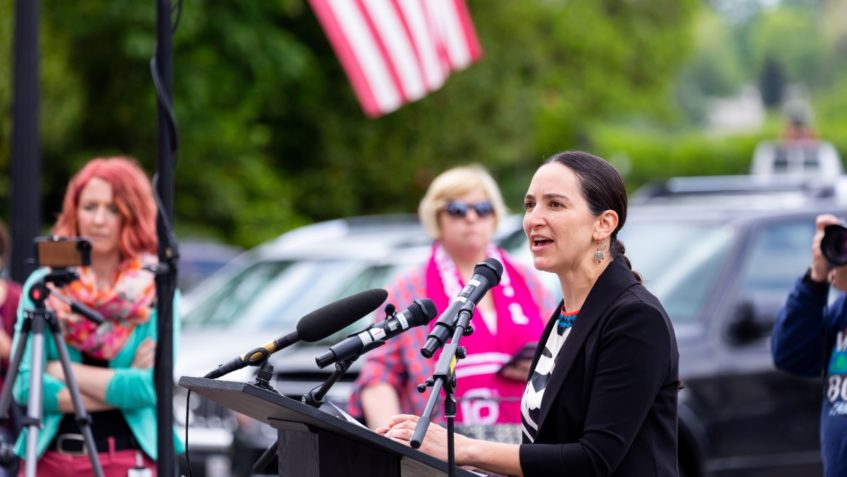Issue 3: Providing Housing Accessibility and Stability
Olympia, August 1, 2019
Dear Neighbors,
This is Issue 3 of my summer e-newsletter series, which gives an overview of some key policies we worked to pass into law this year. This issue focuses on legislation that will address our ongoing crisis involving housing accessibility and stability.
Remember, you can also find information about successful bills I sponsored this year in my April 19th Update from Olympia. All of the bills discussed there passed and will become law.

Access to Housing
We took action to increase access to housing services and to build up the supply of accessible and affordable housing.
Housing assistance
We expanded services for homeless youth and unaccompanied young adults (HB 1657) and approved a pilot program to provide housing vouchers to families in the child welfare system whose main barrier to reunification is the lack of appropriate housing (SB 5718).
Increasing the supply of accessible housing
We passed legislation like HB 1219 and HB 1406, which grant authority to cities and counties to use funds from certain local taxes for affordable housing projects and to combat homelessness. Fortunately, the Seattle City Council and our mayor are leading efforts to take advantage of this authority to access more immediate funding to build local housing.
We also empowered faith communities to contribute to housing stability by adjusting zoning to allow increased density to build affordable housing on property owned by religious organizations (HB 1377).
Additionally, the capital budget added $175 million in affordable housing loans and grants through the Housing Trust Fund, including:
- $10 million for high-quality modular housing to transition people out of homelessness quickly
- $35 million for supportive housing and case management services for people living with behavioral health disorders
- $10 million for competitively awarded grants for state matches on private contributions to fund affordable housing
- $10 million for housing preservation grants
- $5 million for housing veterans
- $5 million for housing to serve people with disabilities

Keeping People in Their Homes
In combating homelessness, keeping people in their existing homes is just as important as building new housing. We passed several bills this session that will do just that.
Property taxes
SB 5160 gives a property tax break to seniors, people, with disabilities and veterans on limited incomes. This will prevent people from being priced out of their homes as property taxes rise along with property values.
Tenant protections
Eviction reform legislation, SB 5600, was enacted to extend the notice time for evictions from 3 to 14 days, aligning our state with national norms and giving tenants time to find money to pay their rent. When people are living paycheck to paycheck, this extended notice period could mean the difference between staying in their home or being out on the street. This legislation also allows judges to use their discretion in nonpayment of rent cases to consider factors beyond the tenants’ control and allows landlords to access a mitigation fund in some cases.
HB 1440 doubled the number of days in advance that landlords of non-subsidized tenancies must notify tenants of rent increases. This will help tenants prepare for rent increases and assess their options for addressing them. The notice period increased from 30 to 60 days, but remains 30 days for subsidized tenancies where rent is based on household-specific circumstances.
Manufactured/mobile homes
HB 1582 added tenant
protections to the Manufactured and Mobile
Home Landlord Tenant Act, like
increasing the notice to pay or vacate period from 5 to 14 days and allowing a court to limit the sharing of
information about an eviction notice.
SB 5183 expanded eligibility for the Manufactured and Mobile Home Relocation Assistance program, which helps with the costs of relocating and securing other housing when a mobile home park closes.
Get More Updates
Follow me on Facebook to get the latest updates on what I’m up to during the interim.
Keep in Touch
Was this newsletter helpful? Did we miss anything? Your participation helps improve our communities!





